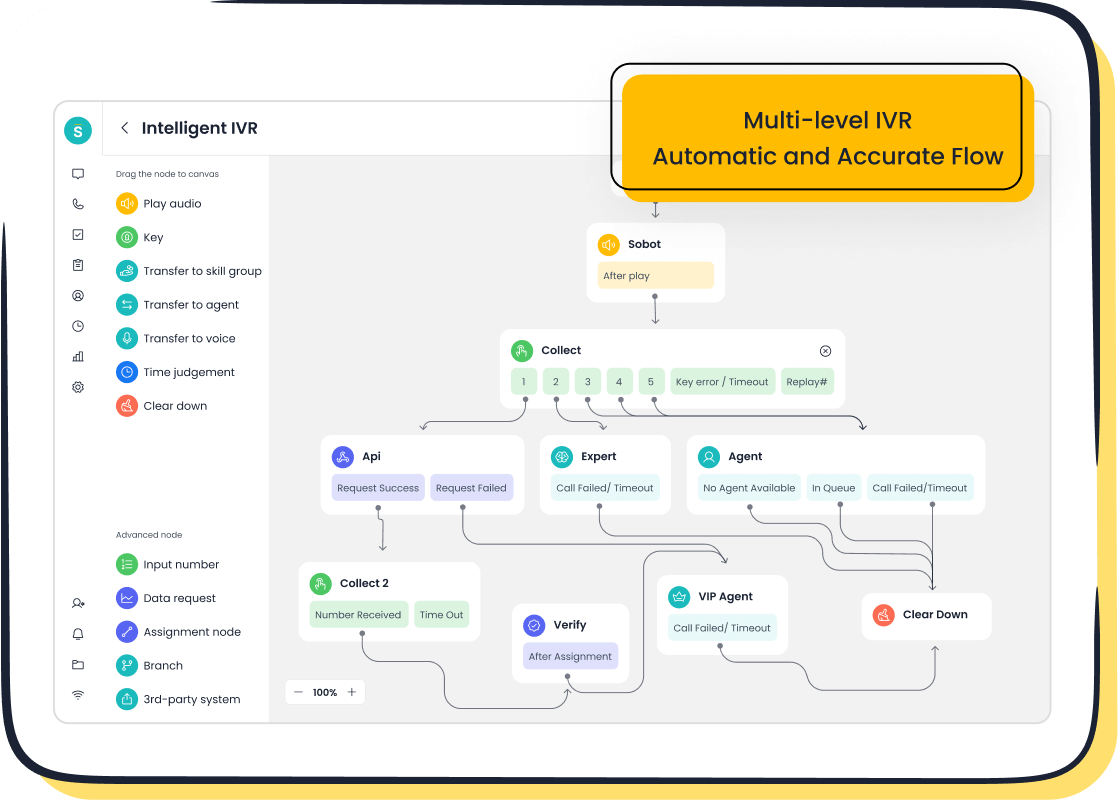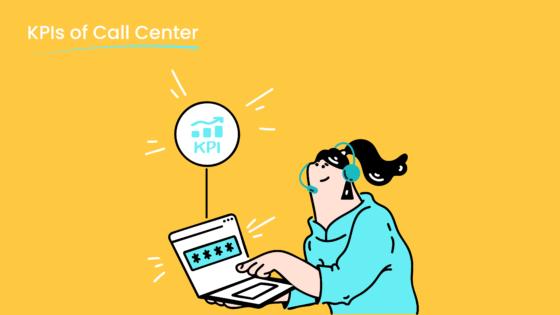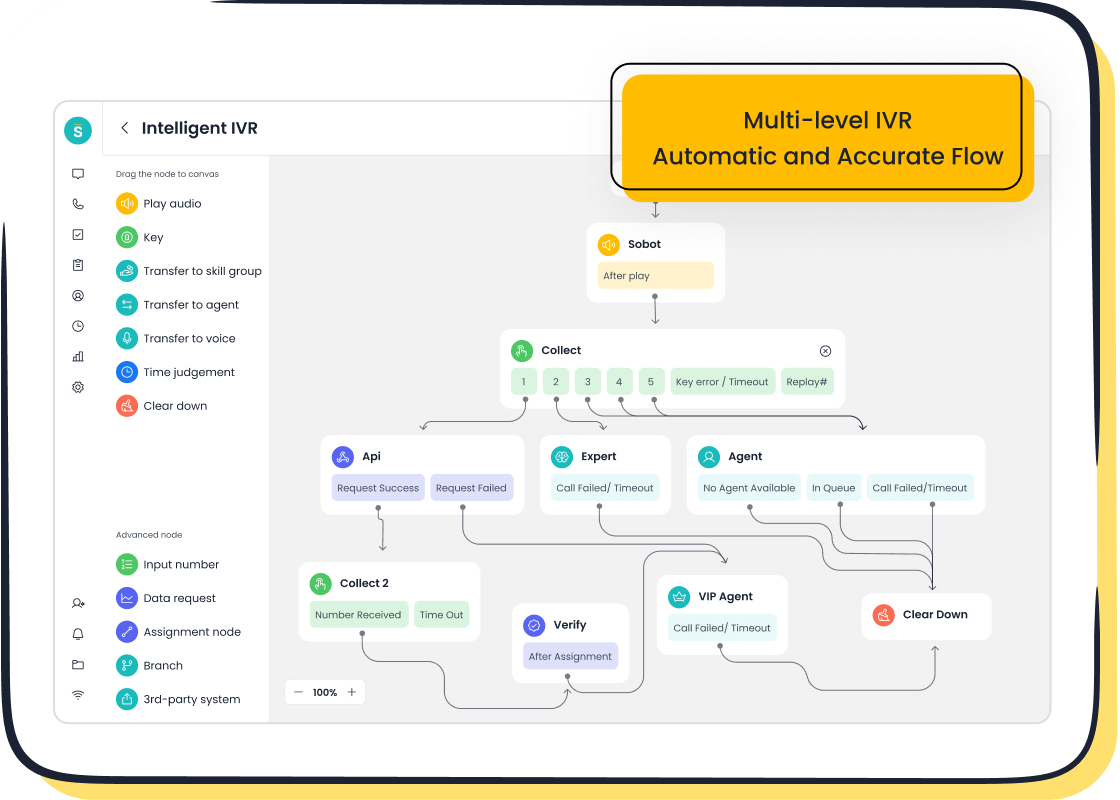Best Picks for Multichannel Call Center Software in 2025

Businesses now rely on multichannel call center solutions like Sobot and Sobot AI to deliver seamless customer service, support, and contact experiences. The leading platforms for 2025 include the Sobot call center and other advanced omnichannel contact center software solutions. These platforms help unify customer interactions across voice, email, chat, and social media, allowing teams to manage service and support from a single workspace. Sobot stands out for its secure, scalable, and AI-driven contact center tools. Global adoption of these platforms continues to surge. In 2024, the contact center software market reached $40.9 billion, with cloud-based call center platforms leading due to flexibility and remote support needs.
| Metric/Aspect | Statistic/Insight |
|---|---|
| Global market value (2024) | $40.9 billion |
| Projected market value (2025) | $63.92 billion |
| CAGR (2024-2033) | 15.7% |
| Regional adoption leader | North America (35.7% market share) |
| Adoption drivers | Omnichannel communication, AI, automation |
Choosing the right multichannel call center software like Sobot empowers teams, drives business growth, and ensures every customer receives timely, effective support.
Top Multichannel Call Center Platforms

Quick Comparison
Businesses in 2025 have many choices for multichannel call center software. The top call center platforms stand out for their reliability, advanced features, and ability to support growth. Sobot, for example, delivers a unified workspace and AI-powered tools that help agents manage calls, chats, and emails from one place. Insider has earned high marks from industry analysts, including a 4.9/5 product capabilities rating and a 100/100 Willingness to Recommend score. These platforms focus on fast deployment, strong support, and seamless integration.
| Platform | Product Capabilities | Deployment Experience | Support Experience | Notable Features |
|---|---|---|---|---|
| Sobot | 4.8/5 | 4.8/5 | 4.9/5 | AI voicebot, unified workspace |
| Insider | 4.9/5 | 4.8/5 | 4.9/5 | Agent One™, omnichannel AI |
| Five9 | 4.7/5 | 4.6/5 | 4.7/5 | Predictive dialing, analytics |
| RingCentral | 4.6/5 | 4.7/5 | 4.6/5 | Unified communications |
Note: Ratings reflect industry analyst and customer review data for 2025. For more details, see Gartner Peer Insights.
Standout Features
The best call center software in 2025 offers a rich set of features that help businesses deliver excellent customer service. Sobot’s call center solutions include smart call routing, AI-powered voicebots, and a unified workspace for agents. These features allow teams to handle voice, chat, email, and social media from one platform. Insider leads with AI innovations like Agent One™, which enables hyper-personalized customer interactions. Most leading call center platforms provide:
- Smart call routing to connect customers with the right agent.
- Call recording and analytics for quality monitoring.
- Omnichannel support across voice, chat, email, and social media.
- AI-powered tools for real-time coaching and sentiment analysis.
- Predictive dialing and interactive voice response (IVR).
- Self-service portals and knowledge bases.
- Automated ticket management and workflow optimization.
- Customer journey analytics and agent performance tracking.
- Integration with CRM and business systems.
- Scalable solutions and flexible pricing for all business sizes.
- Unified communications, combining voice, video, and chat.
- Automation of routine tasks to boost efficiency.
Sobot’s call center software stands out for its global number availability, 99.99% uptime, and seamless integration with CRM systems. These features help businesses improve customer satisfaction and reduce operational costs. Companies can rely on these solutions to manage high volumes of interactions and deliver consistent service across every channel.
What Is Multichannel Call Center Software

Definition
Multichannel call center software brings together different ways for customers to reach a business. This software combines voice calls, SMS text, live chat, and email into one system. Agents can use a single workspace to handle all customer interactions. Computer Telephony Integration (CTI) plays a key role by connecting web-based, voice, and email channels. The software lets agents switch between channels without losing track of the customer’s needs. Industry standards highlight the importance of a unified agent queue. This means agents can see and respond to every customer request, no matter the channel, from one place.
Multichannel call center software reflects the shift in customer expectations. People want to contact businesses in the way that suits them best. Companies like Sobot offer solutions that make this possible. Sobot’s platform, for example, allows agents to manage calls, chats, and emails in a unified workspace. This approach improves customer support and helps deliver a better customer experience.
Why It Matters
Businesses use multichannel call center software to improve customer service and support. Customers expect fast, reliable answers whether they call, email, or chat. This software helps companies meet those needs by making it easy to manage every customer interaction. It also helps agents solve problems faster and more accurately.
Key reasons why multichannel call center software matters include:
- Improving customer satisfaction by solving issues on the first call and reducing wait times.
- Enhancing call quality and connection stability with real-time monitoring.
- Unifying different systems so agents can access all customer data in one place.
- Boosting agent productivity with performance tracking and smart tools.
- Handling busy times with smart call distribution and load balancing.
- Ensuring quality with automated call recording and analytics.
- Personalizing service by linking to CRM systems for a complete view of each customer.
- Planning resources better with AI-powered forecasting.
- Supporting agent training with built-in learning modules.
- Tracking key performance indicators to spot trends and improve operations.
Sobot’s multichannel call center software addresses these challenges. Its unified workspace and AI-powered features help agents deliver consistent customer support. For example, Sobot’s platform supports global businesses by offering stable connections and 99.99% uptime. Companies using Sobot have seen higher customer satisfaction and more efficient service. Opay, a financial service provider, improved its customer satisfaction rate from 60% to 90% after adopting Sobot’s omnichannel solution. This shows how the right software can transform customer experiences and drive business growth.
Tip: Companies that invest in multichannel call center software often see better customer engagement and loyalty. A unified approach to customer support leads to smoother customer experiences and stronger business results.
Key Features of Omnichannel Contact Center Software
Unified Agent Interface
A unified agent interface stands at the core of effective omnichannel contact center software. This feature brings all customer contact points—voice, chat, email, and social media—into one workspace. Agents gain instant access to customer information, which helps them deliver more personalized service. Streamlined workflows reduce call handling times and remove inefficiencies. Enhanced call routing directs each contact to the right agent, improving resolution speed. Automation of repetitive tasks allows agents to focus on complex customer needs. Access to CRM and ERP systems within the interface supports better information flow and operational efficiency. Sobot’s unified workspace, for example, enables agents to manage all contact channels and customer data in one place, improving both agent productivity and customer experiences.
AI and Automation
AI and automation have become essential features in omnichannel contact center software. These advanced features power intelligent routing, self-service, and real-time analytics. AI voicebots handle routine inquiries, freeing agents for more complex issues. Automated workflows manage repetitive tasks, such as ticket creation and follow-up, which increases efficiency. Self-service options, like chatbots and IVR, allow customers to resolve issues without waiting for an agent. Sobot’s AI-powered voicebot and multilingual chatbot provide 24/7 self-service, supporting customer engagement and satisfaction. These solutions help businesses deliver consistent customer experiences across every contact channel.
Integration and Analytics
Integration and analytics drive the value of omnichannel contact center software. Businesses need solutions that connect with CRM, ERP, and e-commerce platforms. Seamless integration ensures agents have a complete view of each customer’s journey. Performance analytics and interaction analytics provide actionable insights across all contact channels. Companies value features such as comprehensive reporting, sentiment analysis, and AI call summarization. These tools help measure customer experience, identify trends, and improve agent performance. Sobot’s platform offers real-time analytics and interaction analytics, supporting continuous improvement and better customer engagement. Integration with workforce optimization tools links operational data with customer satisfaction metrics, helping businesses refine their contact strategies.
Tip: Omnichannel contact center software with advanced features, self-service, and robust analytics empowers teams to deliver exceptional customer experiences and drive business growth.
In-Depth Reviews of Leading Call Center Software

Sobot Voice/Call Center
Sobot Voice/Call Center stands out as a top choice for businesses seeking reliable call center software in 2025. The platform supports companies of all sizes, from startups to global enterprises. Sobot originated in Singapore and now serves over 10,000 brands worldwide, including Samsung, OPPO, Opay, and Luckin Coffee. The company’s mission focuses on innovation, customer-centricity, and efficiency.
Overview
Sobot Voice/Call Center provides a unified workspace where agents manage calls, chats, emails, and social media messages. The software integrates advanced AI, automation, and analytics to streamline every customer interaction. Sobot’s system handles over 6 million online communications and 3 million phone calls daily, with a system uptime of 99.99%. The platform offers global number availability, making it suitable for businesses with international customers.
Key Features
- Intelligent IVR: Customizable greetings, menu building, and real-time routing.
- Unified Workspace: Agents access all customer data and contact history in one place.
- AI-Powered Voicebot: Handles routine inquiries and recognizes customer intent.
- Bulk Outbound Task: Automates outbound calls and assigns leads based on priorities.
- Real-Time Monitoring: Supervisors track call quality and agent performance.
- Seamless Integration: Connects with CRM and business systems for a complete customer view.
- Mobile Compatibility: Available on Android and iOS devices.
- Secure Data Transfer: Ensures encrypted communication and compliance.
Pros
- High system stability with 99.99% uptime.
- Fast deployment and easy integration with existing systems.
- AI-driven automation reduces agent workload.
- Supports global telephony and multi-channel contact.
- Comprehensive analytics for performance improvement.
- Economic SaaS rental model for cost efficiency.
Pricing
Sobot offers flexible pricing based on business needs. The SaaS model allows companies to scale up or down as required. For detailed pricing, businesses can contact Sobot directly or visit the official website.
Best-Fit Scenarios
Sobot Voice/Call Center fits companies that need a stable, scalable, and AI-powered solution. Retailers, financial services, gaming companies, and enterprises with high customer contact volumes benefit most. The platform excels in environments where unified customer data and fast response times matter.
Sobot’s omnichannel solution helped Opay increase customer satisfaction from 60% to 90% and reduce costs by 20%. This real-world example shows the impact of choosing the right call center software.
RingCentral
RingCentral remains a popular choice for businesses seeking cloud-based call center software. The platform supports voice, video, messaging, and contact center operations. Many organizations trust RingCentral for its reliability and unified communications approach.
Overview
RingCentral’s call center software brings together voice calls, SMS, chat, and video meetings. The platform offers a unified agent interface, making it easy for teams to manage customer interactions. RingCentral integrates with popular CRM systems and provides tools for analytics and reporting.
Key Features
- Omnichannel support for voice, chat, and SMS.
- Advanced call routing and IVR.
- Real-time analytics and reporting dashboards.
- Integration with Salesforce, Microsoft, and Google Workspace.
- Workforce management tools for scheduling and forecasting.
Pros
- Reliable cloud infrastructure.
- Easy integration with business applications.
- Scalable for small teams and large enterprises.
- Strong security and compliance features.
Pricing
RingCentral offers tiered pricing plans. The Contact Center plan starts at around $89 per user per month, with additional features available in higher tiers. For the latest pricing, visit RingCentral’s pricing page.
Best-Fit Scenarios
RingCentral works well for businesses that want unified communications and call center software in one platform. Companies with remote or distributed teams benefit from its cloud-based approach. Organizations needing integration with existing productivity tools also find value in RingCentral.
Five9
Five9 is a leading provider of cloud call center software, known for its robust automation and AI capabilities. The platform serves businesses looking to improve customer engagement and agent productivity.
Overview
Five9’s software delivers omnichannel contact management, including voice, chat, email, and social media. The platform uses AI to automate routine tasks and optimize call routing. Five9 supports both inbound and outbound contact strategies, making it versatile for different industries.
Key Features
- Predictive dialing and automated outbound campaigns.
- AI-powered virtual agents and speech analytics.
- Omnichannel routing for seamless customer experiences.
- Real-time and historical analytics dashboards.
- Integration with CRM systems like Salesforce and Zendesk.
Pros
- Advanced automation and AI features.
- Flexible deployment options.
- Comprehensive analytics and reporting.
- Scalable for businesses of all sizes.
Pricing
Five9 offers custom pricing based on business requirements. Plans typically start at $149 per user per month for the Digital and Voice package. For more details, see Five9’s pricing.
Best-Fit Scenarios
Five9 suits organizations that need advanced automation and analytics in their call center software. Companies with high call volumes or complex contact needs benefit from its predictive dialing and AI-driven features.
VoxDesk
VoxDesk is an emerging player in the call center software market. The platform focuses on providing affordable, easy-to-use solutions for small and medium-sized businesses.
Overview
VoxDesk offers cloud-based call center software with essential features for managing customer contact. The platform supports voice calls, SMS, and basic chat functions. VoxDesk aims to simplify setup and reduce the learning curve for new users.
Key Features
- Cloud-based voice calling and SMS.
- Call recording and monitoring.
- Simple IVR and call routing.
- Basic analytics and reporting.
- Integration with select CRM tools.
Pros
- Affordable pricing for small businesses.
- User-friendly interface.
- Quick setup and deployment.
- Essential features for basic contact management.
Pricing
VoxDesk provides competitive pricing, starting at $39 per user per month. The platform offers a free trial for new customers. For more information, visit VoxDesk’s website.
Best-Fit Scenarios
VoxDesk fits small businesses or startups that need straightforward call center software. Companies with limited budgets and basic customer contact needs find VoxDesk a practical choice.
Other Notable Platforms
Several other platforms offer strong call center software solutions. These include both established providers and innovative newcomers. Each platform brings unique features and benefits to the market.
Examples of Notable Platforms
- Talkdesk: Known for AI-powered automation and global reach.
- Aircall: Focuses on simplicity and integration with business tools.
- Nice CXone: Offers advanced analytics and workforce optimization.
- 8x8 Contact Center: Delivers unified communications and contact management.
Key Considerations
When evaluating call center software, businesses should consider the following:
- Does the platform support all required contact channels?
- Are the features aligned with customer service goals?
- How easy is it to integrate with existing systems?
- What level of analytics and reporting does the software provide?
- Is the pricing model flexible for future growth?
Tip: Always request a demo or trial before making a final decision. This helps ensure the platform meets your customer contact needs.
Comparison Table: Leading Call Center Software Platforms
| Platform | Key Features | Best For | Starting Price (USD) |
|---|---|---|---|
| Sobot | AI voicebot, unified workspace, IVR | Global enterprises, retail, BFSI | Custom |
| RingCentral | Omnichannel, analytics, WFM | Remote teams, unified comms | $89/user/month |
| Five9 | Predictive dialing, AI, analytics | High-volume, automation-focused | $149/user/month |
| VoxDesk | Voice/SMS, simple IVR, recording | SMBs, startups | $39/user/month |
| Talkdesk | AI automation, global reach | Enterprises, global support | Custom |
Summary
Choosing the right call center software depends on business size, customer contact volume, and required features. Sobot Voice/Call Center stands out for its stability, AI-driven automation, and global reach. RingCentral and Five9 offer robust solutions for larger organizations, while VoxDesk provides an affordable entry point for smaller businesses. Other platforms like Talkdesk and Aircall add further options for specialized needs.
Note: The best call center software helps businesses deliver excellent customer service, improve agent productivity, and support business growth. Always align the platform’s features with your customer contact strategy for the best results.
How to Choose the Right Call Center Software
Assessing Needs
Selecting the right call center software starts with a clear understanding of business needs. Companies should consider the type of customer service they provide, the volume of customer interactions, and the channels customers prefer. For example, a retail business may need strong chat and self-service features, while a financial service provider might prioritize secure voice support. Sobot offers flexible solutions that adapt to different industries, supporting both inbound and outbound service. Businesses can use the following table to compare key criteria:
| Criterion | Explanation |
|---|---|
| Business Model Alignment | Software must fit the call center type and scale with business growth. |
| Security | Protects customer data and ensures compliance. |
| User-Friendliness | Intuitive interfaces boost agent productivity. |
| CRM Integration | Enhances customer support by connecting with existing systems. |
| Multichannel Support | Unifies voice, chat, email, and social media service. |
| Advanced Features | IVR, ACD, and caller recognition improve service quality. |
| Provider Reputation | Reliable providers ensure consistent service. |
| Cost-Effectiveness | Pricing should match business needs and scale. |
| Scalability | Software must grow with customer demand. |
| Network Reliability | Stable connections maintain customer satisfaction. |
| Cloud-Based Flexibility | Supports remote agents and global service. |
Budget and Scalability
Budget plays a major role in software selection. Companies should compare pricing models and ensure the solution fits both current and future needs. Scalable call center software allows businesses to add agents, channels, or features as customer demand grows. Sobot’s SaaS model provides cost-effective options for small teams and large enterprises. As businesses expand, they may need advanced support like AI-powered self-service, predictive analytics, and workflow automation. These features help manage higher call volumes and improve customer support without increasing costs.
Tip: Companies that plan for growth can avoid costly migrations later by choosing scalable call center software from the start.
Integration and Support
Integration with existing CRM and helpdesk systems is essential for seamless customer service. The right call center software should connect easily with business tools, allowing agents to access customer data and history in real time. Sobot’s platform integrates with popular CRM systems, supporting unified customer support and efficient workflows. Reliable provider support ensures smooth onboarding and ongoing service. Businesses should look for providers that offer training, technical support, and regular updates. Strong self-service options, such as knowledge bases and AI chatbots, empower customers to resolve issues independently, reducing agent workload and improving service quality.
Companies that invest in integrated, scalable, and user-friendly call center software see higher customer satisfaction and more efficient service operations.
Sobot Omnichannel Solution in Action
Opay Case Study
Opay, a leading financial service platform, faced challenges managing high volumes of customer interactions across multiple channels. The company needed a solution that could unify customer support and marketing efforts. Opay chose Sobot’s omnichannel platform to address these needs. The Sobot system brought together voice, email, social media, and WhatsApp into a single workspace. Agents could now handle all customer support requests without switching between tools. The platform’s intelligent IVR and AI-powered chatbots automated routine tasks, allowing agents to focus on complex issues. Opay also used Sobot’s WhatsApp integration for targeted marketing, reaching customers with important updates and promotions.
Sobot’s omnichannel approach helped Opay deliver consistent customer support and improve operational efficiency. The unified workspace made it easier for agents to track customer history and resolve issues quickly.
Key Outcomes
The results of implementing Sobot’s omnichannel solution were significant. Opay saw customer satisfaction rise from 60% to 90%. The company reduced overall costs by 20%. Conversion rates increased by 17%. The intelligent IVR allowed 60% of customers to resolve issues through self-service, reducing the workload for agents. WhatsApp campaigns achieved an 85% message reading rate, boosting engagement. These outcomes show how an effective omnichannel strategy can transform customer support and drive business growth.
Key Benefits for Opay:
- 90% customer satisfaction after Sobot implementation
- 20% reduction in operational costs
- 17% increase in conversion rates
- 60% of customer issues resolved through self-service
- 85% message reading rate on WhatsApp campaigns
Companies seeking to improve customer support and satisfaction can learn from Opay’s success with Sobot’s omnichannel solution. A unified approach leads to better customer experiences and measurable business results.
For more details, see the Opay customer story.
The best call center software in 2025—like Sobot—delivers omnichannel service, AI-driven automation, and unified customer experiences. Each platform offers unique strengths, but businesses should align their choice with long-term growth.
- Invest in scalable call center software with robust analytics and AI to support evolving customer service needs.
- Foster a customer-centric culture and use data to track service KPIs.
To get started:
- Assess readiness and define customer service processes.
- Track metrics like CSAT and average handle time.
- Prioritize FAQ automation for immediate impact.
- Use proven omnichannel platforms such as Sobot for fast deployment.
- Prepare clean data and plan for CRM integration.
Explore Sobot’s omnichannel solutions through a demo or trial. Evaluate your requirements and take the next step toward better customer service and business growth.
FAQ
What is multichannel call center software?
Multichannel call center software lets businesses manage customer interactions across voice, chat, email, and social media from one platform. This unified approach improves agent productivity and customer satisfaction. Sobot offers a robust multichannel call center software solution trusted by over 10,000 brands.
How does multichannel call center software improve customer service?
Multichannel call center software enables agents to respond quickly on any channel. For example, Sobot’s unified workspace allows agents to view all customer data and history in real time. This leads to faster resolutions and higher satisfaction scores, as seen with Opay’s 90% CSAT rate.
Can multichannel call center software integrate with CRM systems?
Yes. Most leading multichannel call center software, including Sobot, integrates seamlessly with popular CRM platforms. This integration gives agents a complete view of each customer, streamlining workflows and improving service quality. Integration also supports better analytics and reporting.
Is multichannel call center software secure and reliable?
Security and reliability remain top priorities. Sobot’s multichannel call center software provides 99.99% uptime and encrypted data transfer. Businesses can trust the platform to protect sensitive information and maintain stable operations, even during high call volumes. Learn more about Sobot’s security here.
Who should use multichannel call center software?
Any business that handles customer inquiries across multiple channels benefits from multichannel call center software. Retailers, financial services, and global enterprises use Sobot to unify communications, reduce costs, and boost customer loyalty. Companies of all sizes can scale these solutions as they grow.
Tip: For more details on Sobot’s multichannel call center software, visit the official website.
See Also
Comprehensive Overview Of Omnichannel Call Center Platforms
Best Contact Center Software Solutions Evaluated For 2024
Leading Call Center Analytics Tools Ranked For 2024
